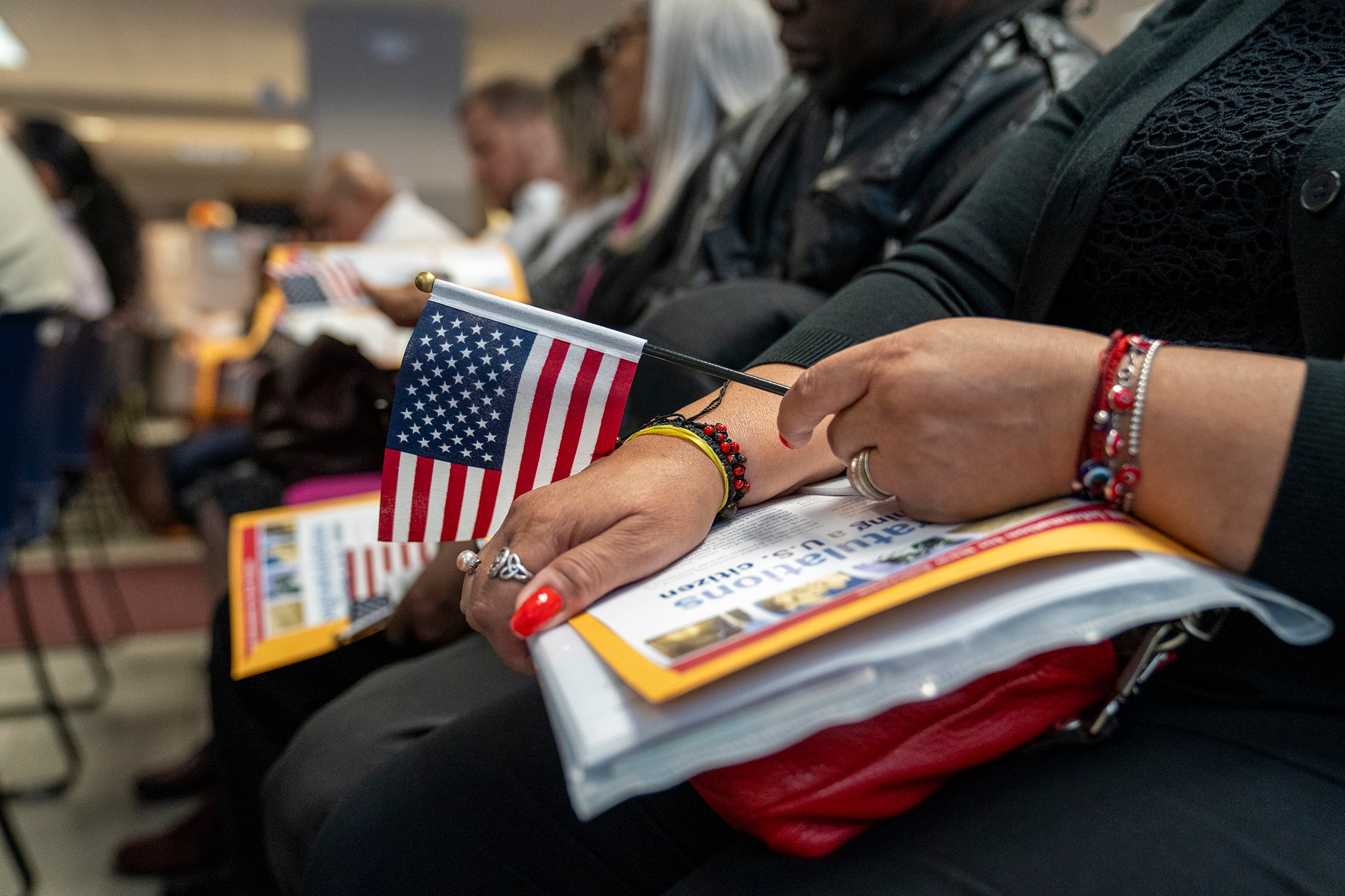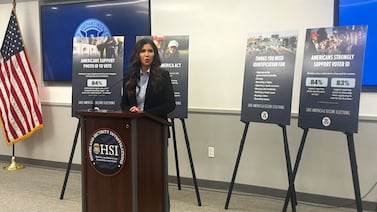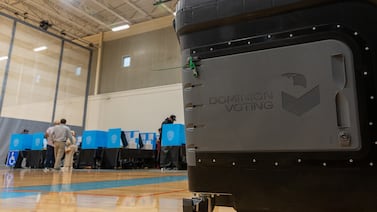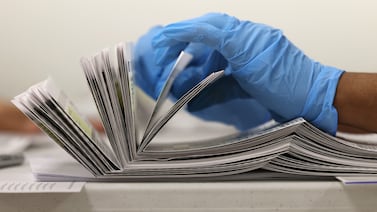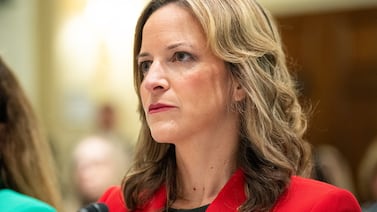Votebeat is a nonprofit news organization reporting on voting access and election administration across the U.S. Sign up for our free weekly newsletter to get the latest.
What happened?
A federal judge on Monday declined to order the federal government to undo its overhaul of SAVE, a database that some states are using to check voters’ citizenship status, but said she doubted the legality of the government’s changes.
SAVE, which is operated by the Department of Homeland Security, was typically used by states to check residents’ eligibility for public benefits. But the changes the Trump administration introduced in April made SAVE easier to use for screening voters’ citizenship, allowing state election officials to upload voter registration records for verification in bulk, instead of one by one, and search by Social Security number.
The League of Women Voters and other plaintiffs in the case claimed that the changes made SAVE less accurate and were illegal, and asked the court for a temporary order that the database revert to how it operated before the overhaul.
Judge Sparkle Sooknanan, of the U.S. District Court for the District of Columbia, declined to issue the stay, saying the league failed to show that the changes caused irreparable injury. But she called for expedited proceedings to rule on the plaintiffs’ claim that the changes are illegal, given the “rapid ongoing developments and serious issues at stake.”
What’s the dispute?
The case involves a lawsuit against DHS, the Justice Department, and the Social Security Administration over the use of DHS’ Systematic Alien Verification for Entitlements, an immigration database, to screen voters.
States have used SAVE for years to verify people’s citizenship status and help determine whether they are eligible for benefits. Earlier this year, the Trump administration revamped SAVE so that states could use it more easily to check their voter rolls for noncitizens.
Experts have questioned the accuracy and reliability of the data, pointing to how quickly the changes to SAVE were made. They’ve also raised concerns about how the federal government is using the data uploaded by states, and whether using the tool puts people’s privacy or voting rights at risk.
Who are the plaintiffs and what are they asking for?
In September, the national League of Women Voters and two of its chapters, along with the Electronic Privacy Information Center and five individual plaintiffs, sued the three federal agencies.
The plaintiffs allege that the Trump administration has unlawfully transformed SAVE “into a national citizenship database pooling SSA data known to be unreliable, now being used by some states to purge voter rolls and open criminal investigations.” They allege that the use of the databases could lead to voters being wrongly flagged as noncitizens and removed from the rolls.
The lawsuit asks the court to declare DHS’ actions unlawful and unconstitutional; to block the administration from using the database in its current form; and to order the deletion of what they allege is unlawfully collected data.
The federal government argued in court filings that federal law, including the Illegal Immigrant Reform and Immigrant Responsibility Act of 1996, authorizes data sharing between DHS and the Social Security Administration. It also says that the SAVE revamp is lawful and poses no harm to voters’ privacy.
In a motion filed on Oct. 27, Texas sought to intervene in the case, saying it needs continued access to SAVE to comply with state and federal requirements for maintaining its voter list. A week earlier, the Texas Secretary of State’s Office said it had used the database to identify 2,724 “potential noncitizens” on its voter roll, and referred them to counties to see whether those voters are eligible.
What happens now?
Sooknanan, the federal judge, ordered the parties to propose next steps by Nov. 21. She expressed urgency to resolve the case on the merits as quickly as possible.
Read more Votebeat coverage of the fight over noncitizen voting and the SAVE database:
- Judge rules against Trump’s call for proof-of-citizenship requirement for voters, Oct. 31, 2025
- Texas counties look into ‘potential noncitizens’ on voter rolls. Here’s what they’re finding., Oct. 31, 2025
- Trump administration proposal for online voter registration form raises concerns, Oct. 27, 2025
- State election directors press for answers on using SAVE to check voter citizenship, July 28, 2025
- As Texas dives into federal SAVE database to verify voter citizenship, some experts are worried, July 22, 2025
Natalia Contreras is a reporter for Votebeat in partnership with the Texas Tribune. Contact Natalia at ncontreras@votebeat.org.
Alexander Shur is a reporter for Votebeat based in Wisconsin. Contact Alexander at ashur@votebeat.org.

